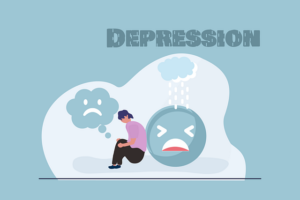cognitive behavioral therapy (CBT) in Pittsburgh has become a cornerstone of mental health care, offering specialized treatment for a variety of conditions, including anxiety, depression, OCD, and trauma. Local CBT therapists provide individualized, evidence-based strategies that address both the psychological and behavioral aspects of these disorders. The city's innovative approach combines traditional CBT with mindfulness practices to enhance therapeutic outcomes. Pittsburgh also boasts couple's CBT programs, which are designed to improve communication, resolve conflicts, and strengthen relationships by equipping partners with tools for managing emotional challenges together. Whether it's through personalized one-on-one sessions or group therapy, Pittsburgh's CBT services are committed to providing comprehensive support and long-term coping strategies for a range of mental health issues.
Discover the transformative power of evidence-based Cognitive Behavioral Therapy (CBT) right in the heart of Pittsburgh. This article delves into the various facets of CBT practiced by local experts, offering tailored solutions for anxiety, depression, trauma, insomnia, OCD, and relationship challenges. From individual therapies to group sessions, learn how CBT therapists in Pittsburgh are helping residents overcome mental health hurdles with innovative, research-backed techniques. Join us as we explore the city’s comprehensive approach to mental wellness and how it can be harnessed for personal growth and resilience.
- Mastering Anxiety with Cognitive Behavioral Therapy Pittsburgh: A Comprehensive Overview
- Pittsburgh's Approach to Depression: Effective CBT Techniques for Residents
- Trauma-Focused CBT Pittsburgh: Healing from the Inside Out
- Sleep Better with Cognitive Behavioral Therapy: Solutions for Insomnia in Pittsburgh
- Mindfulness Meets CBT: Pittsburgh Practitioners Offer a Holistic Approach to Mental Health
- Conquering OCD: Specialized CBT Treatment Available in Pittsburgh
- CBT for Stronger Bonds: Couples Therapy in Pittsburgh
Mastering Anxiety with Cognitive Behavioral Therapy Pittsburgh: A Comprehensive Overview

In Pittsburgh, cognitive behavioral therapy (CBT) has become a cornerstone in addressing a spectrum of mental health issues, with its efficacy in treating anxiety being particularly noteworthy. CBT therapists in Pittsburgh offer tailored approaches to help individuals manage their anxiety effectively. These professionals specialize in identifying and altering negative thought patterns and behaviors that contribute to anxiety disorders. The approach is highly adaptive, as evidenced by the various modalities available in the city, including anxiety CBT Pittsburgh for those struggling with generalized anxiety, panic attacks, phobias, and social anxiety. Pittsburgh’s CBT practitioners are adept at guiding clients through the process of self-reflection and behavioral change, equipping them with tools to challenge and overcome their anxious thoughts.
Furthermore, the city’s CBT expertise extends beyond standard protocols to include specialized treatments for complex conditions such as trauma-focused CBT in Pittsburgh. This specialized treatment is particularly effective for those dealing with post-traumatic stress disorder (PTSD) or other trauma-related issues. Additionally, CBT for insomnia and mindfulness-based CBT are also available, catering to a diverse range of mental health needs within the community. In Pittsburgh, families and couples can also benefit from CBT interventions designed to enhance relationship dynamics through couples CBT. For younger individuals, including teens and children, Pittsburgh’s approach to CBT is sensitive to their unique developmental stages, ensuring that therapy is accessible and age-appropriate. Group CBT sessions in Pittsburgh offer a supportive network for shared experiences and collective growth, further underscoring the city’s comprehensive CBT offerings.
Pittsburgh's Approach to Depression: Effective CBT Techniques for Residents

In Pittsburgh, the approach to addressing depression through cognitive behavioral therapy (CBT) is both innovative and personalized, with a focus on harnessing the expertise of CBT therapists in Pittsburgh to tailor treatment plans for each individual. The city’s mental health community, renowned for its commitment to evidence-based practices, integrates the core principles of CBT to help residents understand the connection between their thoughts, feelings, and behaviors. This therapeutic framework not only aids in managing symptoms of depression but also empowers individuals with tools to maintain their mental well-being over time. The Pittsburgh approach emphasizes collaboration between therapists and clients, fostering an environment where change is not only possible but actively encouraged.
Furthermore, the city’s specialized CBT therapists are adept at addressing a range of issues, from anxiety to trauma. For those grappling with trauma, trauma-focused CBT in Pittsburgh is designed to help individuals process and overcome their experiences. This specialized form of CBT assists clients in safely revisiting traumatic memories, gradually reducing the impact these events have on their daily lives. Similarly, for those experiencing sleep disturbances related to depression or other mental health challenges, CBT for insomnia in Pittsburgh offers a structured intervention to restore healthy sleep patterns without relying solely on medication. This holistic approach to depression treatment ensures that Pittsburgh residents receive comprehensive and effective care tailored to their unique needs.
Trauma-Focused CBT Pittsburgh: Healing from the Inside Out

In Pittsburgh, cognitive behavioral therapy (CBT) has become a beacon of hope for individuals grappling with trauma. Trauma-focused CBT in this steel city offers a specialized approach to healing that addresses the deep-seated issues associated with traumatic experiences. Pittsburgh’s skilled CBT therapists are adept at guiding clients through the intricacies of their thought patterns and behaviors, helping them to reconstruct their perceptions and responses to trauma. This therapy is not just about managing symptoms; it’s a journey of self-discovery where individuals learn to confront their past, make sense of their experiences, and gradually rebuild their lives from the inside out. The emphasis on understanding the connection between thoughts, emotions, and behaviors empowers clients to take control of their mental health, fostering resilience and promoting long-lasting well-being.
Moreover, the city’s commitment to mental health is evident in the array of CBT services available, including specialized treatment for anxiety and depression. Anxiety CBT Pittsburgh programs are designed to equip residents with tools to manage their anxiety effectively, while depression CBT Pittsburgh interventions provide a structured path to overcoming depressive symptoms. These therapists understand that each client’s experience is unique, and they tailor their approach to meet the individual needs of those seeking help. By fostering an environment where clients can explore their feelings in a supportive setting, CBT therapists in Pittsburgh enable healing at a fundamental level, offering a pathway to a more fulfilling and balanced life.
Sleep Better with Cognitive Behavioral Therapy: Solutions for Insomnia in Pittsburgh

In Pittsburgh, cognitive behavioral therapy (CBT) has emerged as a beacon of hope for individuals grappling with sleep disturbances, particularly those suffering from insomnia. The city’s CBT therapists are well-versed in addressing the cognitive and behavioral aspects that underpin sleep issues. These professionals employ evidence-based techniques tailored to each client’s unique challenges. By identifying and modifying thought patterns and sleep behaviors that contribute to insomnia, these treatments aim to promote restful slumber without relying solely on medication. For those in Pittsburgh affected by anxiety, CBT therapists offer strategies to manage and mitigate the racing thoughts and worries that often precede or disrupt sleep. The therapy’s effectiveness in addressing the root causes of insomnia is a testament to its adaptability and comprehensive approach to well-being.
Moreover, trauma-focused CBT in Pittsburgh provides specialized care for individuals with a history of traumatic experiences who experience sleep disturbances. This form of CBT gently guides clients through the process of confronting and processing traumatic memories in a safe, supportive environment. By doing so, it equips them with tools to overcome the emotional and physiological impacts that can disrupt normal sleep patterns. In Pittsburgh, families and couples also benefit from CBT, as therapists offer interventions designed to enhance communication, manage conflicts, and improve overall relationship dynamics—all of which are crucial for a healthy sleep environment. Whether through individual sessions or group CBT programs, the solutions provided by Pittsburgh’s CBT practitioners offer a pathway to more restful nights and brighter days.
Mindfulness Meets CBT: Pittsburgh Practitioners Offer a Holistic Approach to Mental Health

In Pittsburgh, a burgeoning field where cognitive behavioral therapy, or CBT, is increasingly recognized for its efficacy in addressing various mental health concerns, local practitioners are integrating mindfulness practices into their therapeutic regimens. This holistic approach marries the structured techniques of CBT with the contemplative practices of mindfulness, offering a comprehensive toolkit for individuals seeking to manage their mental well-being. For those grappling with anxiety in the Steel City, CBT therapists Pittsburgh are adept at tailoring interventions that challenge and reframe negative thought patterns, while simultaneously teaching coping strategies rooted in mindfulness. This dual focus not only helps in alleviating immediate distress but also promotes long-term resilience against future anxiety triggers.
Similarly, depression CBT Pittsburgh practitioners are adept at employing this hybrid approach to help clients understand and alter the thought processes that contribute to depressive symptoms. By incorporating mindfulness into traditional CBT exercises, these professionals facilitate a deeper level of self-awareness and emotional regulation, which is crucial for those navigating the challenges of depression. Additionally, trauma-focused CBT Pittsburgh services are offered through specialized programs designed to address the complex needs of individuals who have experienced traumatic events. These practitioners work diligently to create a safe and supportive environment where clients can explore their experiences at their own pace, using both CBT and mindfulness techniques to promote healing and recovery.
Conquering OCD: Specialized CBT Treatment Available in Pittsburgh

In Pittsburgh, cognitive behavioral therapy (CBT) has emerged as a beacon of hope for individuals grappling with OCD. Specialized CBT treatment programs in the city are tailored to address the unique challenges associated with obsessive-compulsive disorder. These programs are conducted by a network of highly trained CBT therapists Pittsburgh who possess expertise in cognitive restructuring, exposure therapy, and other evidence-based strategies necessary to confront and manage OCD symptoms effectively. By focusing on the thought patterns and behaviors that perpetuate OCD, these therapists guide clients towards a more balanced outlook and healthier coping mechanisms. The Pittsburgh approach to CBT for OCD emphasizes personalized care, ensuring that each individual receives treatment that aligns with their specific needs and circumstances. This specialized attention not only aids in overcoming the disorder but also empowers individuals with the skills to maintain progress over time.
Furthermore, the city’s commitment to providing comprehensive CBT services is evident through its diverse range of therapy options, including group sessions that foster community support and understanding. These group CBT sessions in Pittsburgh create an environment where individuals can share experiences, learn from each other, and build a network of peers who are also on their journey to recovery. Additionally, the integration of anxiety CBT Pittsburgh methods within these groups provides a holistic approach to treating OCD, often intertwined with anxiety disorders. The availability of depression CBT Pittsburgh resources further underscores the city’s comprehensive care for mental health concerns, including those related to trauma. Pittsburgh stands as a testament to the transformative power of CBT therapists and their ability to help individuals conquer OCD through specialized treatment tailored to the Steel City’s vibrant community.
CBT for Stronger Bonds: Couples Therapy in Pittsburgh

In Pittsburgh, cognitive behavioral therapy (CBT) has become a cornerstone in addressing and treating mental health issues among couples. CBT therapists in Pittsburgh are adept at identifying dysfunctional patterns of thinking and behavior that contribute to relationship stressors. By integrating evidence-based techniques tailored for couples, these professionals assist partners in reframing negative thought cycles and fostering open communication, leading to stronger bonds. Anxiety and depression, common challenges within relationships, are effectively managed through personalized CBT interventions designed by the city’s seasoned therapists. These treatments empower couples to navigate their emotional landscapes together, equipping them with tools to handle future distress more effectively.
Trauma-focused CBT in Pittsburgh is particularly noteworthy for its ability to heal and mend relationships affected by past traumas. By addressing the underlying cognitive processes that perpetuate emotional responses linked to trauma, couples can break free from cycles of hurt and resentment. This specialized approach enables partners to build a shared understanding and mutual support system, paving the way for healthier, more resilient relationships. The city’s comprehensive CBT programs for couples not only aim to alleviate immediate distress but also to instill long-term coping strategies that can be leveraged should life’s challenges arise.






